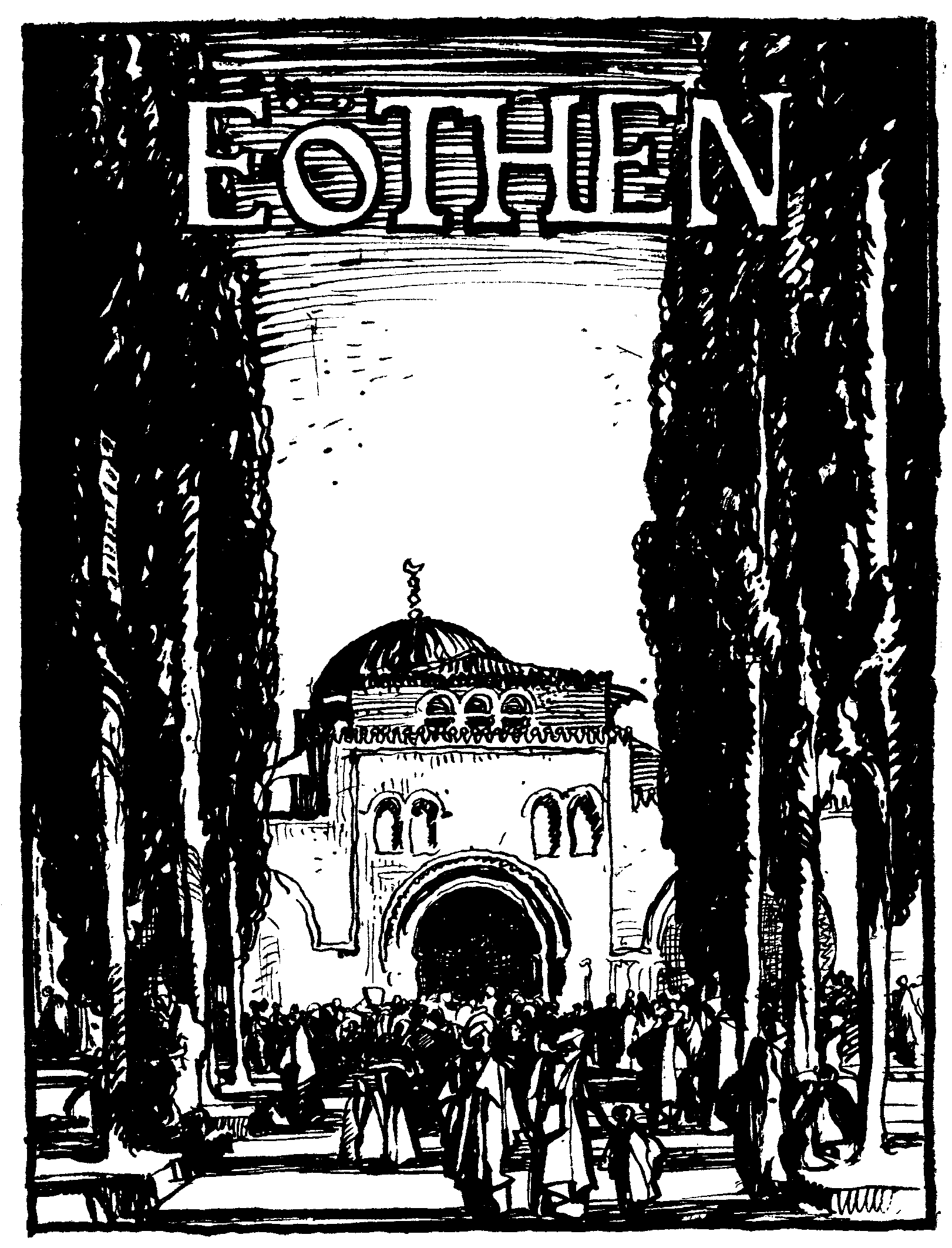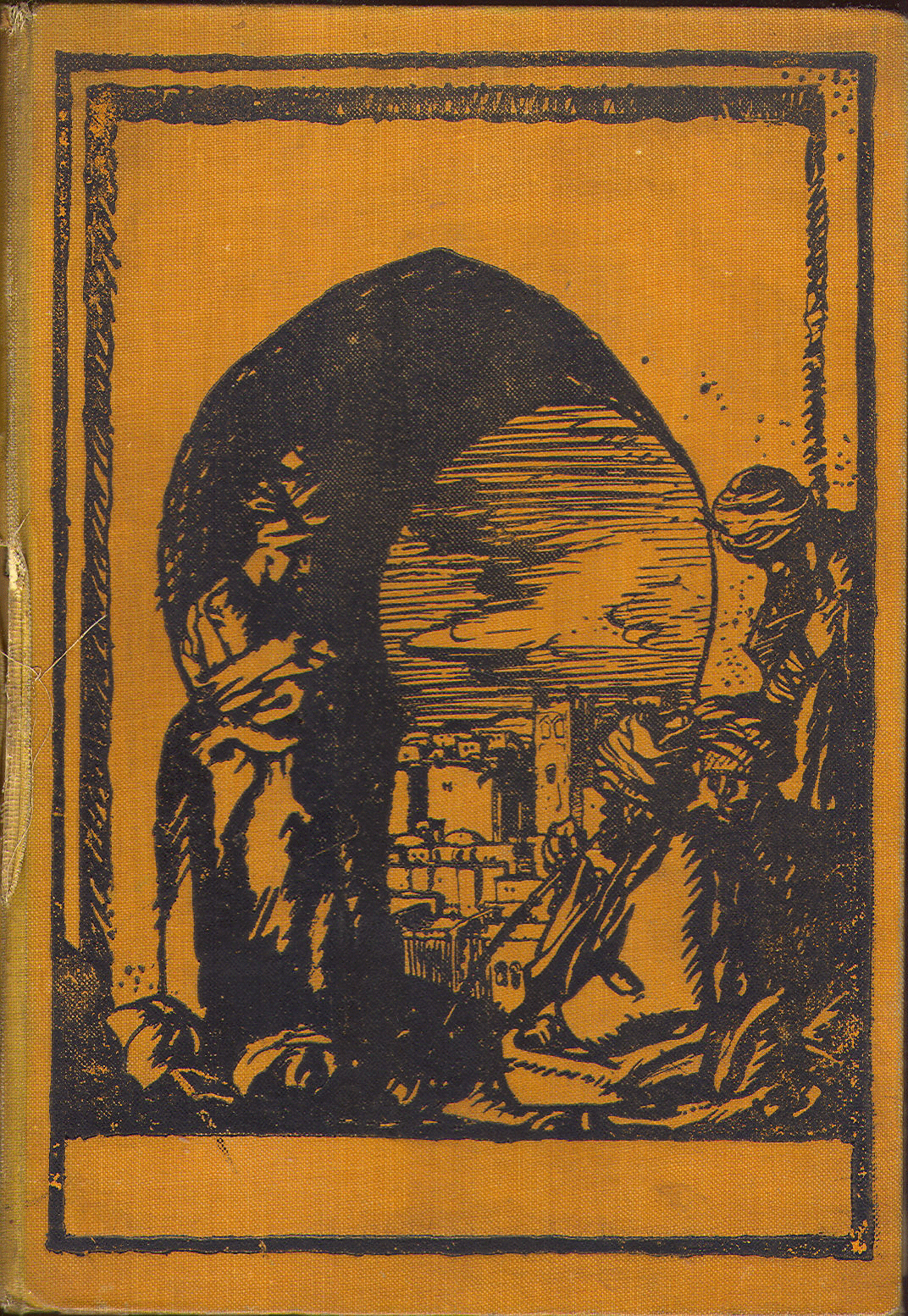 |
| Unused. Now living in a drawer. |
 |
| Marsden 1913 edition The Baldwin Project |
The narrative is bookended by the specter of plague in Constantinople, his journey's start and end. When he reaches Cairo, his turnaround point, the plague is also ascendant there. Plague in its three different forms can kill 50% of those who contract it if there is no treatment; these days it is treated by antibiotics. While this may account for some of the narrative's fascination, it is also the description of desert travel that attracts attention, especially for those of us who live in moister climes. Kinglake writes:
 |
| Alexander Wm. Kinglake (National Portrait Gallery, London, npg.org) He fell from a dromedary. |
For several miles beyond Gaza the land, freshened by the rains of the last week, was covered with rich verdure, and thickly jeweled with meadow flowers so bright and fragrant that I began to grow almost uneasy -- to fancy that the very desert was receding before me, and that the long-desired adventure of passing its "burning sands" was to end in a mere ride across a field. But as I advanced, the true character of the country began to display itself with sufficient clearness to dispel my apprehensions, and before the close of my first day's journey I had the gratification of finding that I was surrounded on all sides by a tract of real sand, and had nothing at all to complain of, except that there peeped forth at intervals a few isolated blades of grass, and many of those stunted shrubs which are the accustomed food of the camel. (Kinglake 141)Ah, that sounds nice and dry to some of us waterlogged New Englanders. Kinglake gets a little cocky about his ability to handle the desert, manifesting in a funny kind of desert fever that causes him to overestimate and overvalue his refreshment by the sands:
"For several hours I urged forward my beast at a rapid though unsteady pace, but at length the pangs of thirst began to torment me. I did not relax my pace, however, and I had not suffered long when a moving object appeared in the distance before me" (189).He hails a pair of traveling Bedouins, and without a word, dismounts his dromedary, snatches a Bedouin's water flask, and drinks from it. Returning it without a word, he keeps going toward Suez.
"Suez, I found, was still three hours distant, and the sun going down in the west warned me that I must find some other guide to keep me straight. This guide I found in the most fickle and uncertain of the elements. For some hours the wind had been freshening, and it now blew a violent gale (191)..."
 |
| Cover of Eothen(Marsden 1913 ed.) from The Baldwin Project |
"It happened that my dromedary veered rather suddenly from her onward course. . . . I had nothing but a halter in my hand. The expected resistance failed, for the halter was hanging upon that side of the dromedary's neck towards which I was slightly leaning. I toppled over, head foremost, and then went falling through air till my crown came whang! against the ground; and the ground, too, was perfectly hard (compacted sand); but my thickly wadded head-gear (this I wore for protection against the sun) now stood me in good part and saved my life" (192).
It's a good thing Kinglake went back to England and passed the bar, practicing law for nearly twenty years before he stood for MP of Bridgwater, later determined to be a rotten borough. Who knows what he would have turned out to be from more dromedary accidents, had he stayed on in the East.
No comments:
Post a Comment